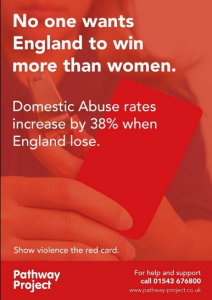At Anthony Gold, we know that any divorce is stressful and that there are a number of things to think about. The process of getting a divorce will be just as much practical as technical, especially if there are children. Below is a checklist to consider when going through the separation process.
Divorce checklist
Money
In relation to the finances, some of the tasks will be set out in the court order that is drawn up. For example, how to deal with the ownership of property, bank accounts, investments, pensions and debts. However, there are other important practical points to consider which are included in the following non-exhaustive checklist:
- Agree if any maintenance/works needs to be done to a property and agree costs before the spouse moves out (eg. roof or boiler repair)
- Check and/or change any beneficiary nominations under your pension
- Check and/or change the nomination under any death in service benefit from your spouse to an alternative beneficiary
- Close or transfer joint accounts to sole name or open a new bank account if needed
- Close any joint credit cards
- Check life policies and change the beneficiary if appropriate
- Check medical cover for or as a spouse and whether it covers you both after separation and up to decree absolute
- Change any key passwords and separate financial paperwork/ID docs
- Notify DVLA and car insurer if you are moving
- Notify banks/pension providers of new address
- Notify vet and insurer if pets relocate address and amend microchip details
- Notify GP of change of address
- Apply for single person’s council tax
- Change utility bills
- Check what benefits you may be entitled to
- Consider if a change of name is necessary to ID documents
- Change locks to a property once ownership transferred
- Redirect post
- Change your Will or make a Will
- Amend or make a new Power of Attorney
The Children
You do not have to obtain a Court Order or even draft an agreement in relation to how you will care for your children. Although you may find written agreement helpful. Here is a checklist of practical items you may wish to consider:
- Notify childminder/nursery/school of any address change/contact details and status of parents’ relationship and ensure documents are copied to both parents if possible
- Notify childminder/nursery/school of who will pick up and drop off the child and when
- Purchase new sets of clothes/uniform/shoes/toys/books/medicine so that both homes are equipped if something is forgotten
- Agree any medical/health/allergy treatment that may be necessary (eg asthma inhalers) and when that is to be administered
- Agree on the GP and dentist to be used
- Work out dates/holidays/special occasions with reference to a calendar and who will hold or attend parties
- Work out if parents’ evenings/school events are to be attended separately, together or alternately
- Agree contact with grandparents and wider family members if they are to provide a caring role
- Consider using a parenting app such as “Our Family Wizard” or paper diary if communication is difficult
If you are thinking of separating, you should always take legal advice as to the implications, risks and protections you should put in place. If you would like further information, please contact the family team at Anthony Gold LLP at mih@anthonygold.co.uk.
Get A FREE 20-Min Consultation On Family Law


